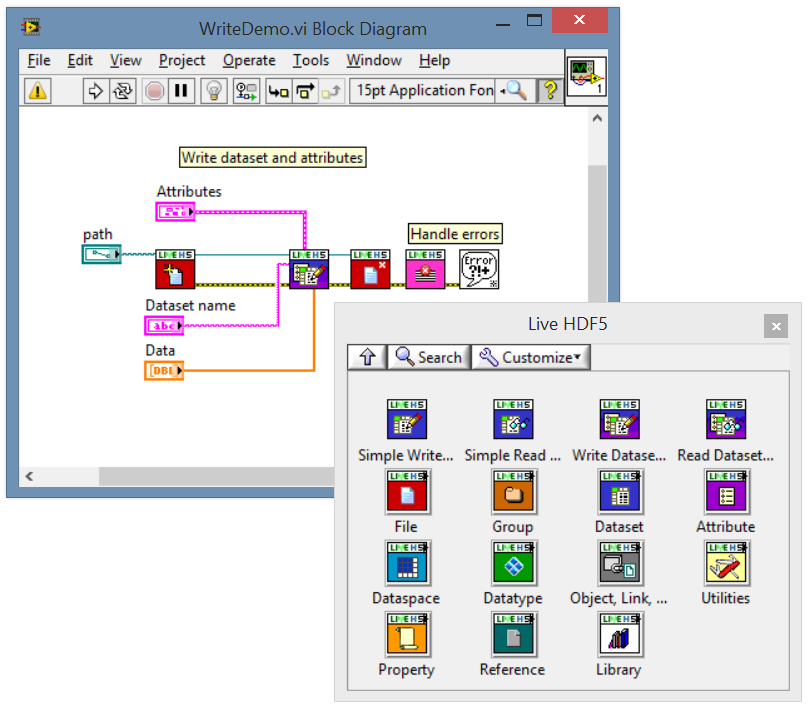About the project
You can specify build options for h5py as environment variables when you build it from source: $ HDF5DIR=/path/to/hdf5 pip install -no-binary=h5py h5py $ HDF5VERSION=X.Y.Z pip install -no-binary=h5py h5py $ CC='mpicc' HDF5MPI='ON' HDF5DIR=/path/to/parallel-hdf5 pip install -no-binary=h5py h5py. Hdf5r is an R interface to the HDF5 library. It is implemented using R6 classes based on the HDF5-C-API.The package supports all data-types as specified by HDF5 (including references) and provides many convenience functions yet also an extensive selection of the native HDF5.
The h5py package is a Pythonic interface to the HDF5 binary data format.
It lets you store huge amounts of numerical data, and easily manipulate that data from NumPy. For example, you can slice into multi-terabyte datasets stored on disk, as if they were real NumPy arrays. Thousands of datasets can be stored in a single file, categorized and tagged however you want.
H5py uses straightforward NumPy and Python metaphors, like dictionary and NumPy array syntax. For example, you can iterate over datasets in a file, or check out the .shape or .dtype attributes of datasets. You don't need to know anything special about HDF5 to get started.
In addition to the easy-to-use high level interface, h5py rests on a object-orientedCython wrapping of the HDF5 C API. Almost anything you can do from C in HDF5, you can dofrom h5py.
Best of all, the files you create are in a widely-used standard binary format, which you can exchange with other people, including those who use programs like IDL and MATLAB.
Stable Downloads
All downloads are now available at the Python Package Index (PyPI).
Check out the install guide.
Install The Hdf5 Library Version
Development
All development for h5py takes place on GitHub. Before sending a pullrequest, please ping the mailing list at Google Groups.
Documentation
The h5py user manual is a great place to start; you may also want to check out the FAQ.
There's an O'Reilly book, Python and HDF5, written by the lead author of h5py, Andrew Collette.
General questions are always welcome on the mailing list.

This is just a quick walkthrough of installing HDF5 on a linux system. I'm doing this on CentOS 6.5 right now, but I'm pretty sure the steps were the same for Ubuntu. There's an RPM package for RedHat/CentOS, but since the tgz should work on more systems, that's what I'm using here.
First, download the latest appropriate .tgz package for your system from http://www.hdfgroup.org/HDF5/release/obtain5.html – in this case it's http://www.hdfgroup.org/ftp/HDF5/current/bin/linux-x86_64/hdf5-1.8.13-linux-x86_64-shared.tar.gz

Make a place in the filesystem for the hdf5 tools to live:
Extract the tools:
Make a symbolic link “latest” to point to the latest (only, at this point) version installed:
Run the h5redeploy script to change the paths in a few scripts:

Add /opt/hdf5/latest/bin to the $PATH for connections after this point:
Install Hdf5 Library Ubuntu
Log out and back in, then check your path:
[lariosadd@hydra ~]$ echo $PATH
/usr/lib64/qt-3.3/bin:/usr/local/bin:/usr/bin:/bin:/usr/local/sbin:/usr/sbin:/sbin:/opt/cuda/latest/bin:/home/lariosadd/bin:/opt/cuda/latest/bin:/opt/hdf5/latest/bin
Looks good, so see if it works, I guess?



